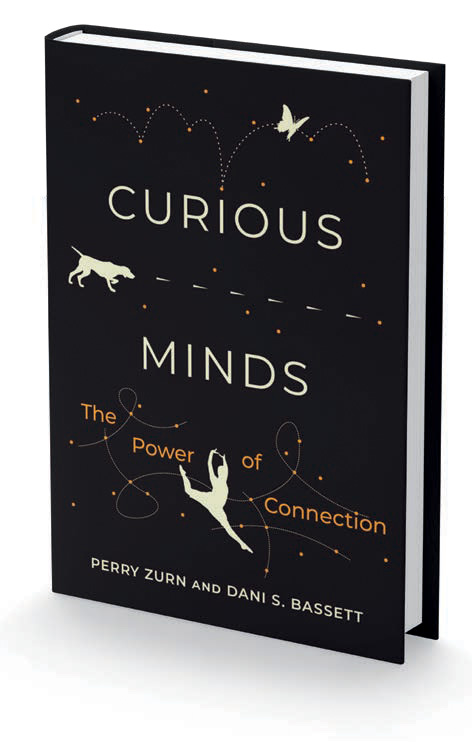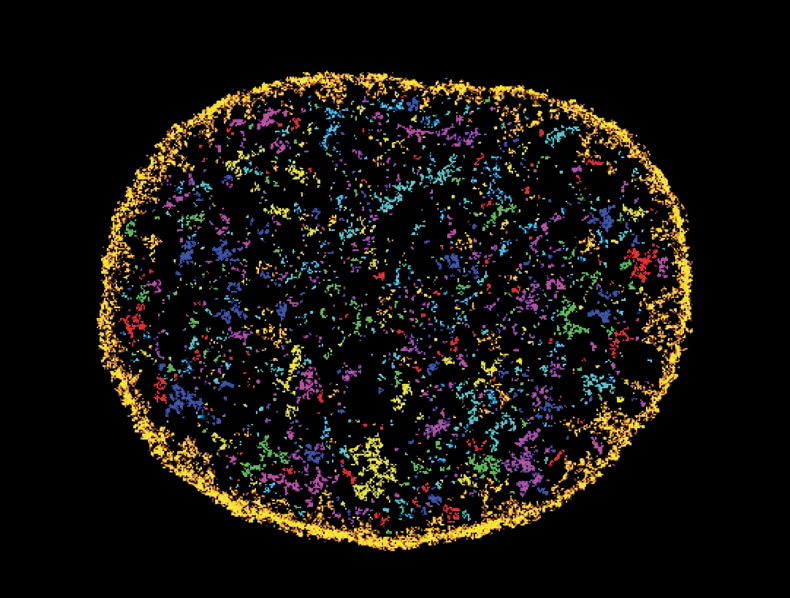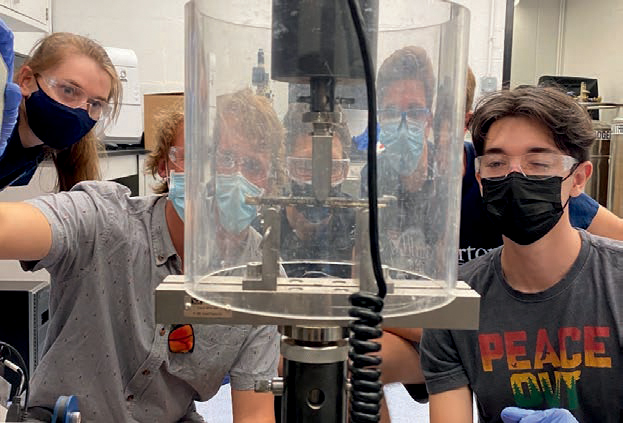Penn Engineering Welcomes World’s Roboticists to Philadelphia
In May, Penn Engineering hosted the Institute of Electrical and Electronics Engineers (IEEE) International Conference on Robotics and Automation (ICRA) at the Pennovation Center and the Pennsylvania Convention Center. One of the world’s major robotics conferences, ICRA brought roughly 4,500 guests from 89 countries to the city, in addition to virtual attendees, as the conference marked its first in-person event since 2019. The five-day events included academic talks, workshops, the robotics expo and contests, as well as tours on Penn’s campus, including the Pennovation Center, the Singh Center for Nanotechnology and Penn Medicine.
Penn Electric Racing Unveils New REV7 Racecar Despite Pandemic Setbacks
After a two-year hiatus, Penn Electric Racing, Penn’s Formula Society of Automotive Engineers (FSAE) racecar-building team, unveiled their latest creation: the REV7. When Penn’s campus physically shut down due to the COVID-19 pandemic, the team was sent home before they were able to complete their previous REV6 model. During the ensuing time, when protocols meant working and studying from home, many of the team’s members ended up graduating, so the group elected to spend that time designing a new car. Key changes to the design include the switch from REV6’s four-wheel drive to REV7’s two-wheel drive, and the implementation of the team’s first pullrod suspension system. They also made the critical decision to change this design to rear-wheel drive, meaning that the team needed to redesign the battery pack and the powertrain, a composite of parts responsible for using energy stored in the vehicle’s battery system to make the car go.

Penn Engineering Announces Online Master’s in Data Science
Penn Engineering has introduced its second online master’s degree: the Master of Science in Engineering in Data Science (MSE-DS Online). The program combines Penn Engineering’s Ivy League-quality coursework in topics such as big data, artificial intelligence and machine learning to students interested in pursuing careers ranging from data scientists to data engineers. Classes begin in January 2023.

$3M to Train the Next Generation of Scientists on Soft Materials, Machine Learning and Science Policy
The national science foundation’s Research Traineeship Program’s latest series of grants are funding university programs focused on artificial intelligence and quantum information science and engineering. Penn Engineering researchers and collaborators across the University, led by Chinedum Osuji, Eduardo D. Glandt Presidential Professor and Chair of Chemical and Biomolecular Engineering, have received $3 million for a new Penn project on Data Driven Soft Materials Research, which will be used to provide specialized training for 50 Ph.D. students and 40 master’s students, enabling them to advance soft materials research using data-intensive methods, and to use science policy to better understand the intersection of new soft-material technology with real-world problems.
Tangen Hall: A Headquarters for Innovation and Entrepreneurship
Located on the northeast corner of 40th and Sansom streets, Tangen Hall is referred to as the physical “start here button” for aspiring Penn entrepreneurs and innovators, with a mission of democratizing entrepreneurship for all students. A partnership with the Wharton School, Penn Engineering and the Stuart Weitzman School of Design, Tangen is now also the home of Studios @ Venture Labs, a collection of workspaces and labs that house digital and analog fabrication technologies that empower the Penn community to make their ideas a reality.
CENTER is Part of a New NIH Education Initiative on Scientific Rigor
 In order to combat the “replication crisis” in biomedical research — the fact that a large percentage of experiments would not return the same results if they were conducted again — the National Institute of Neurological Disorders and Stroke (NINDS), part of the National Institutes of Health (NIH), has launched the Initiative to Improve Education in the Principles of Rigorous Research. Konrad Kording, Nathan Francis Mossell University Professor with appointments in the Departments of Bioengineering and Computer and Information Science in Penn Engineering and the Department of Neuroscience in Penn’s Perelman School of Medicine, has been awarded one of the initiative’s first five grants for “Creating an Educational Nexus for Training in Experimental Rigor,” or CENTER. This funding will support Kording and collaborators as they develop a user-friendly, open-source educational platform of modules that address biases in research, logical fallacies around causality, hypothesis development, literature search design, identifying experimental variables, and reducing confounding variables in research.
In order to combat the “replication crisis” in biomedical research — the fact that a large percentage of experiments would not return the same results if they were conducted again — the National Institute of Neurological Disorders and Stroke (NINDS), part of the National Institutes of Health (NIH), has launched the Initiative to Improve Education in the Principles of Rigorous Research. Konrad Kording, Nathan Francis Mossell University Professor with appointments in the Departments of Bioengineering and Computer and Information Science in Penn Engineering and the Department of Neuroscience in Penn’s Perelman School of Medicine, has been awarded one of the initiative’s first five grants for “Creating an Educational Nexus for Training in Experimental Rigor,” or CENTER. This funding will support Kording and collaborators as they develop a user-friendly, open-source educational platform of modules that address biases in research, logical fallacies around causality, hypothesis development, literature search design, identifying experimental variables, and reducing confounding variables in research.
Introducing Scholarships for MCIT Online
In order to deepen Penn Engineering Online’s commitment to diversity and accessibility, the program has expanded the School’s on-campus diversity scholarship program to include MCIT Online students. Starting with the Fall 2022 cohort, incoming MCIT Online students are now eligible to apply for the Dean’s Master’s Scholarship, which is designed to increase the program’s impact and expand the diversity of voices and experiences its students bring to the classroom.
‘Curious Minds: The Power of Connection’

How does the tangle of neurons in our brains wire itself up to learn new things? Dani S. Bassett, J. Peter Skirkanich Professor in Bioengineering and Electrical and Systems Engineering and Director of the Complex Systems Lab, studies the relationship between the shape of the brain’s networks of neurons and its abilities, especially the way the shape of the network grows and changes with the addition of new knowledge. To get at the fundamentals of the question of curi- osity, Bassett worked with their identical twin Perry Zurn, Associate Professor of Philosophy at American University, and the two have investigated the many different ways a person can exhibit curiosity, resulting in a new book on the subject, Curious Minds: The Power of Connection.

CEMB 2.0: Developing ‘Mechanointelligence’
The Center for Engineering Mechanobiology (CEMB) is one of 18 active NSF Science and Technology Centers, bringing together dozens of researchers from Penn Engineering and the Perelman School of Medicine, as well as others spread across campus and at partner institutions around the world to study the physical forces that govern the behavior of cells and their communication with their neighbors. With its funding renewed for another five years, CEMB is entering into a new phase of its mission, centered on the nascent concept of “mechanointelligence,” or attempting to understand the forces that allow cells to sense, remember and adapt to their environments. Ultimately, harnessing these forces would allow researchers to help multicellular organisms — plants, animals and humans — better adapt to their environments as well. The dynamics governing mechanointelligence vary greatly along time- and length-scales, so detailed models of individual cells and their components are necessary to connect the effects of their physical environments to the downstream effects those forces have on biological processes.

A New Makerspace for Materials Students
During the pandemic’s at-home period, a group of students in Materials Science and Engineering dreamed up a student-run space where they could apply their newfound knowledge to creative projects. After returning to campus, the group worked with departmental leadership and staff to turn their proposed MatSci Makerspace into a reality. The design, fabrication and testing done in the MatSci Makerspace deepens students’ knowledge on the synthesis, processing, structure, properties and application of materials. It also fosters teamwork and communication, which is essential in an ever-more complex ecosystem.
New ASSET Center Focuses on the Safety, Explainability and Trustworthiness of AI Systems

Penn Engineering’s newly formed ASSET (AI-enabled Systems: Safety, Explainability and Trustworthiness) Center, part of Penn Engineering’s Innovation in Data Engineering and Science (IDEAS) initiative, aims to realize the full potential of AI-based decision making by designing it to be more reliable and transparent. The Center will focus on science and tools for enhancing AI-based systems so that developers can guarantee their reliable operation and users can trust them to meet their expectations.
